This article first appeared in the UConn Business magazine, Volume 3, Issue 2 (Spring 2013)
1970
Thomas O. Barnes ’78 MBA has been appointed to Our Piece of the Pie, Inc.’s Champions Council.
Alan J. Cicchetti ’76 MBA has been appointed to director of agency relations by Lenders Compliance Group as well as the executive director of Brokers Compliance Group.
Carolyne I. Gatesy ’79 MBA has been honored by the Glastonbury Chamber of Commerce as its Businessperson of the
Year.
Thomas J. Mango ’79 joined the Commercial Banking team of Simsbury Bank as a commercial relationship manager.
Lauralee E. Martin ’79 MBA has been appointed to chief executive officer, Americas at Jones Lange LaSalle.
John G. Salek ’74 delivered a session on cash flow to the Entrepreneurship Boot Camp for Veterans with Disabilities in Hartford in September 2012.
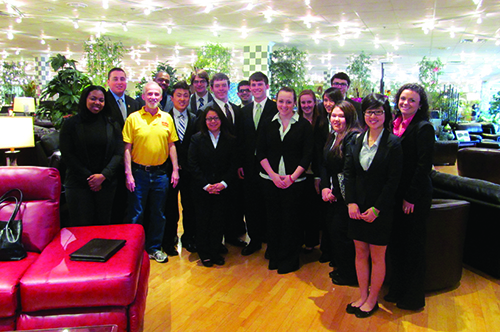
1980
David L. Albrycht ’89 MBA has been named president and chief investment officer at Newfleet Asset Management LLC.
Gary Fisher ’80 MBA has been appointed to executive vice president of marketing
for residential products of Beaulieu Group.
Stewart R. Joslin, Jr. ’89 has been named chief financial officer at Wheeler Clinic.
Paul H. Kauffman ’84 has been appointed as a managing director at Jones Lang LaSalle in its Stamford office.
Peter H. Lewis ’83, ’88 MBA has been appointed to chief financial officer of Nabsys, Inc.
Wayne F. Patenaude ’82 has been appointed as president and chief executive officer of Cambridge Savings Bank and Cambridge Financial Group, Inc.
Christine F. Purcell ’88 MBA has been named the first female rector at Christ Church in Westerly, Rhode Island.
James P. Towey, Jr. ’87, ’96 EMBA has been hired at Onset Computer Corporation, Inc. as the director of engineering.
1990
Roberta A. Anderson ’92 MBA has been appointed to senior vice president of private banking at People’s United Bank.
Brian T. Davin ’90 MBA has been elected to the Board of Education in Morris, New Jersey.
Dean P. Freeman ’91 has been appointed to executive vice president and chief financial officer at Watts Water Technologies.
Andrew L. Glassman ’90 has been named vice president of operations finance at CSX Corporation.
C. Douglas Johnson ’92 MBA is the first faculty member to receive all four faculty excellence awards at Georgia Gwinnett College.
Mary Jane Karwoski ’92 MBA was named vice president of human resources at Books-A-Million, Inc. Books-A-Million, Inc. is one of the leading book retailers in the nation.
Sean M. O’Connor ’92, ’00 MBA has been appointed to be the director of marketing at Software Marketing Associates.
Frank Mancini Jr. ’90 has been named president and chief executive officer of Connex Credit Union.
Stephen T. Surprenant ’98 MBA has been named vice president, Mission Integration, at Saint Francis Care.
Rick C. Welker ’92 MBA has been appointed to acting chief financial officer at Beacon Roofing Supply, Inc.
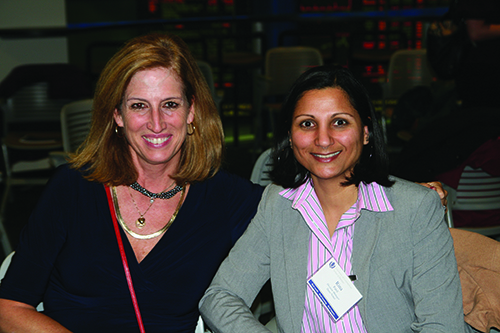
2000
The Honorable Antonietta Boucher ’02 MBA has been elected chief deputy minority leader for the Connecticut Republican Caucus.
Jordan Cohen Coe ’06 MBA has been named in Connecticut Magazines “Top 40 Under 40 Class of 2013″.
Matthew J. DiGeronimo ’06 MBA has begun hosting a weekly radio show, “The Smith Floyd Water Cooler” which broadcasts on Wall Street Network.
James F. Leddy ’03 MBA has been appointed to the position of senior vice president and treasurer of JetBlue Airways Corp.
George D. Noewatne, Jr. ’02 MBA has been promoted to director of public works and engineering in Cheshire, Connecticut.
2010
Wes Poole ’10 EMBA has been appointed as the northeast TAM services practice manager for VMware, Inc.
Lt. Col. Michael J. Zacchea ’12 MBA served as the grand marshal of the 13th Connecticut Veterans Parade held in Hartford.
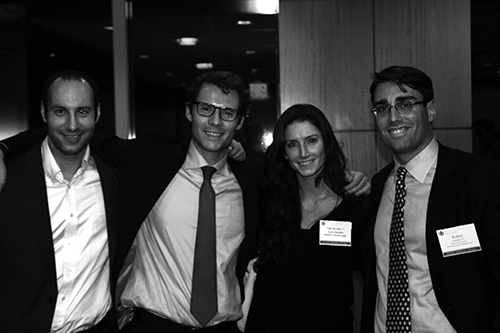
What’s your news? Submit your career, education, or personal announcements to the Business Alumni Network!
alumni.business.uconn.edu
The Business Alumni Network is a free resource offered to all School of Business alumni and is an excellent tool for networking with fellow alumni and current students. In the Network you can maintain a personal profile, search
and post jobs and resumes as well as find valuable business contacts in our CareerNet and Alumni Directory. Please be
sure to activate your UConn Lifetime Email forwarding address within the network!
Interested in registering? Please send an email to aspada@business.uconn.edu for your login information.
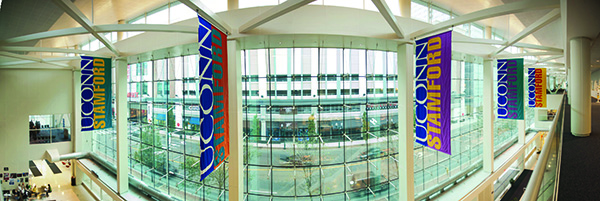
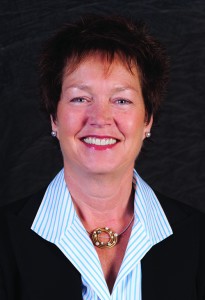 Colleen McGuire is the Director of the Graduate Business Learning Center, 100 Constitution Plaza Hartford, CT and is responsible for the
Colleen McGuire is the Director of the Graduate Business Learning Center, 100 Constitution Plaza Hartford, CT and is responsible for the 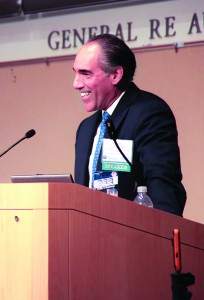 Setting the stage for the conference, Frank Minerva ’01 MBA, Managing Director and COO of UBS bank, delivered the welcoming address, presenting the audience with a discussion on preparing for unexpected risks, such as Hurricane Sandy.
Setting the stage for the conference, Frank Minerva ’01 MBA, Managing Director and COO of UBS bank, delivered the welcoming address, presenting the audience with a discussion on preparing for unexpected risks, such as Hurricane Sandy.